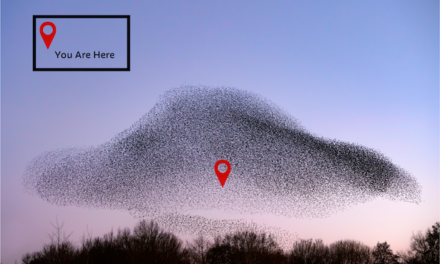Introduction
In the Anthropocene era, traditional benchmarks for progress—technological, economic, and efficiency-driven—are proving insufficient for addressing the complex, intertwined challenges facing humanity and the planet. A refined concept of progress must embrace deeper philosophical and existential dimensions: consciousness, non-duality, and evolving self-identities as envisioned by Charles Taylor. This paper proposes a unified framework that situates these elements at the heart of our understanding of progress, advocating for a dynamic, interconnected approach to human development and environmental stewardship.
Consciousness as an Unfolding Process
Consciousness, often studied within the silos of cognitive science and philosophy, must be re-envisioned as an unfolding process that evolves both individually and collectively. This perspective sees human consciousness not as a static entity but as an adaptive phenomenon, continuously shaped by interactions with the environment and reflective self-awareness. Such a dynamic view of consciousness allows for a form of progress that is responsive and anticipatory, aligning with Bayesian models of predictive processing where beliefs and behaviours are updated in light of new information.
Non-duality and Interconnectedness
Non-duality, a principle rooted in Eastern philosophy, emphasizes the fundamental interconnectedness of all phenomena—challenging the prevalent dualistic paradigms that separate mind from body, humanity from nature, and the individual from the collective. By adopting a non-dualistic approach, progress can be reframed to prioritize holistic well-being and sustainability, recognizing that the health of one system is inherently dependent on the health of all others. This shift is crucial for developing solutions that are genuinely sustainable, respecting the complex interdependencies of global ecological and social systems.
Charles Taylor’s Narrative Identity
Charles Taylor’s concept of narrative identity provides a framework for understanding the self not as an isolated agent but as a narrative unfolding over time, shaped by cultural, historical, and social contexts. This notion aligns with the idea of progress as an unfolding story, one that is continuously co-authored by communities and individuals. It suggests that progress should be measured not just by external achievements but by the richness of our collective narratives and the extent to which they embody authenticity, ethical integrity, and inclusiveness.
Ethical Frameworks and Authenticity
Building on Taylor’s emphasis on authenticity, this framework argues that progress must also be ethical, reflecting a deep commitment to values that promote long-term global well-being rather than short-term gains. This approach requires a reevaluation of our ethical frameworks to ensure they are adaptable and responsive to changing circumstances and enhanced understandings of our impact on the world.
Conclusion: A New Paradigm of Progress
The proposed paradigm shifts the discourse on progress from a linear, goal-oriented model to an adaptive, interconnected, and ethically grounded process. It integrates the unfolding nature of consciousness, the holistic insights of non-duality, and the depth of narrative identities to formulate a comprehensive approach to progress. Such a paradigm not only responds to the challenges of the Anthropocene but also offers a resilient, sustainable, and deeply humanistic path forward.
Terry Cooke-Davies
2nd May 2024
Special thanks to the AI assistance provided by Perplexity AI, and by ChatGPT (4) from OpenAI in shaping this article.

Link to Series Home Page
Rethinking and Reimagining Progress: Exploring the Convergence of Physical, Biological, and Cultural Evolution

Link to Article 1 of 3
Rethinking Progress: Embracing Unfolding and Adaptation in the Anthropocene

Link to Article 2 of 3
Unveiling Unity: The Interconnected Evolution of the Cosmos, Life, and Human Culture






